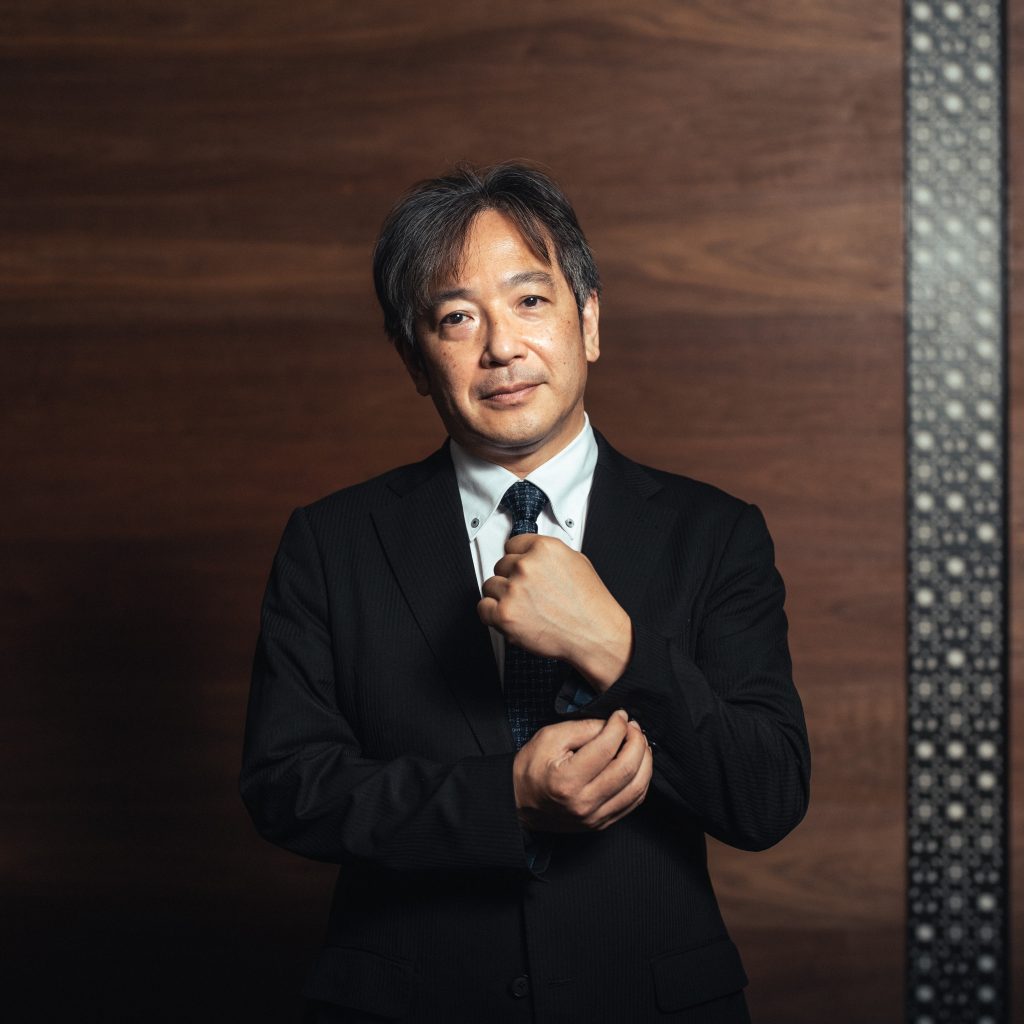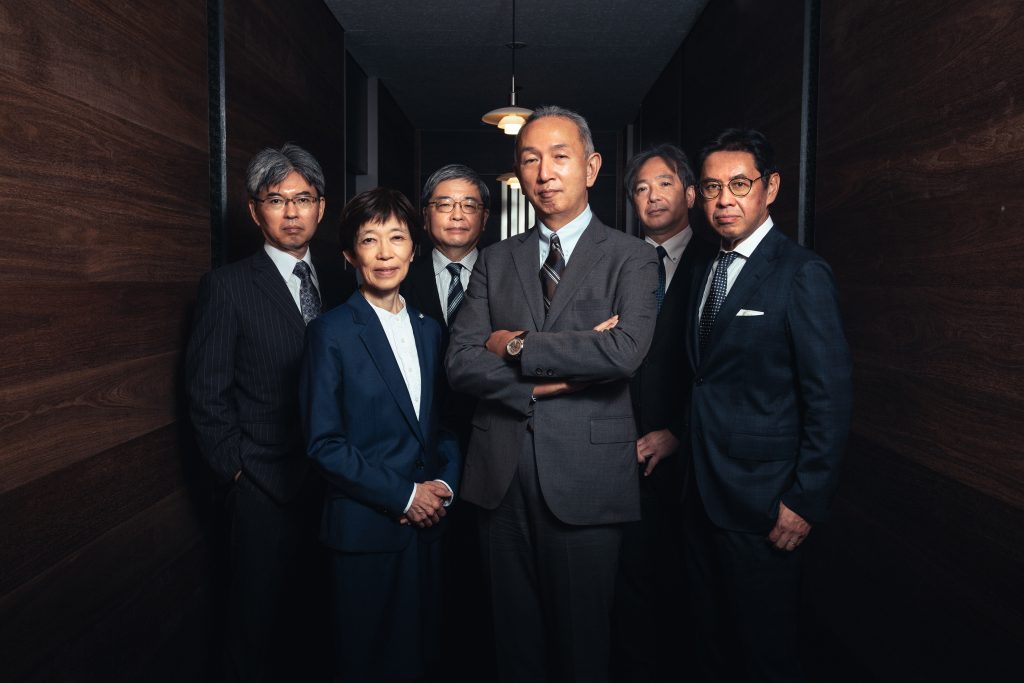Nurturing Sought-After Global Talent in a World of Increasing Division

Nowadays, many universities are actively engaging in global education through various approaches and with various objectives. What does Sophia University consider to be skills that are essential for future global talent to develop? Tetsuo Morishita, Vice President for Global Academic Affairs, will help answer that question.
The Importance of Individuals Who Can Generate Value Through Dialogue
Recent major events such as the COVID-19 pandemic and Russia’s invasion of Ukraine have occurred one after another, leading to disruptions in the supply chain and energy crises, among other challenges. These events have highlighted and awakened people to the reality that the world’s countries and people cannot exist in isolation, and that our interdependence makes us reliant on each other.
However, these crises have also accelerated the division and formation of blocs worldwide. Individuals with a constructive mindset and the ability to generate new value through dialogue will be in greater demand than ever. In light of this, I believe that it is essential for Sophia University students to cultivate the following five qualities and abilities.
First and foremost, is the ability to have both a “global outlook and a local viewpoint.” In a world that appears to be fragmenting, it is necessary to have a broad, holistic understanding and view. However, that alone is not enough; each region and community has unique characteristics and circumstances and the ability to perceive and comprehend those from a local perspective is equally indispensable.
The ability to “embrace differences and create value in them” is also essential. The international community is currently facing various conflicts and challenges – rather than blindly accepting information from the media and developing fixed notions or prejudices about specific countries or races, I strongly encourage students to see things with their own eyes, engage in dialogue, and approach problem-solving with the premise that “differences are a natural part of life.” Finding joy in different perspectives, cultures, customs, and situations, and from there, generating new ideas and values will only become increasingly important from now.
To be recognized as a true global citizen, one should possess “ample cultural education.” When engaging in discussions with individuals from diverse backgrounds, a foundation of knowledge and culture is essential for effective dialogue. Moreover, in today’s rapidly changing society, a liberal arts education serves as a yardstick for assessing and evaluating newly emerging phenomena.
However, when speaking of developing a “global” mindset, it’s easy to focus on what lies outside our national borders, but we must not forget to cultivate “a deep understanding of one’s own country.” Individuals who cannot articulate their country’s politics, economy, and culture may face a lack of respect in the international community. Therefore, it is crucial to first deepen one’s understanding and ability to confidently converse on their own country’s politics, economy, and culture.
It goes without saying that “language skills” are of utmost importance. If one struggles with English, which is the international lingua franca, opportunities for success abroad will be limited regardless of other skills and abilities. While many Sophia University students boast strong English proficiency, it is essential for them to further develop practical and advanced English skills. Additionally, it would benefit students to acquire proficiency in one or two languages other than English and understand the cultures underlying those languages.
Cultivating the 5 Qualities and Abilities through Liberal Education and Learning, Language Subjects, and Study Abroad Programs
To enhance the development of the 5 aforementioned qualities and abilities in our students, Sophia University has been recently striving to expand its education.
Starting from the academic year 2022, we have undertaken curriculum reforms and introduced Liberal Education and Learning to equip students with the “foundation for lifelong learning.” Through this, we aim to facilitate a deep understanding of human nature, the ability to interpret events from multiple perspectives, and the capacity to pose questions and think critically, contributing to a deeper acquisition of a liberal arts education and cultivating the ability to “embrace differences and create value.”
Regarding language education, we offer English classes tailored to different proficiency levels and provide courses in 22 different languages. Our university also has a diverse community, including international students and foreign faculty members, providing abundant opportunities for communication in foreign languages if desired. We encourage and expect Sophia students to take advantage of this environment to enhance their language skills.
To recognize the differences among individuals with diverse backgrounds and deepen understanding of one’s own country, overseas experience is highly effective and important. However, for students who aspire towards further growth, some may find that simply participating in study abroad programs or attending classes at foreign universities is not enough. Therefore, we are currently in the process of developing new and advanced overseas programs, taking the next step to meet the needs of these students and offer new experiences.
For example, starting from New York, in the United States, and then traveling through various countries in Asia, students can engage in discussions with local students and researchers about the international community’s challenges. Or, students from the Asia-Pacific region can come together to analyze and approach solutions to global issues from different perspectives. Realizing such ambitious study abroad programs is a challenge, but Sophia is forging relationships with universities around the world to provide this reality for students.
Education that Supports the Growth of High School Students Aspiring to Thrive in a Global Society
To become individuals who can embrace each other’s differences, it is essential to develop a strong “core” within oneself from an early stage. To shape this “core,” our University provides opportunities for high school students to present their achievements and inspire further growth through engaging in various challenges related to their aspirations and ideals.
The “World Exploration Club (Sekai Tankyu Bu),” which started in 2020, is an online program where high school students engage in exploratory activities on topics related to global issues and fields in Southeast Asia that excite them. Participants work on compiling research papers under the guidance of our university faculty. Additionally, the English Oratory Competition for high school students, known as the “John Nissell Cup,” serves as a great opportunity to improve English proficiency.
In addition to these programs, Sophia University will continue to provide opportunities for further growth in response to the enthusiasm of highly motivated high school students. However, fostering global talent is not the sole role of universities, and in a world characterized by division, Japanese universities have many contributions to make. Not only do we look forward to the success of our students and graduates, but Sophia University would like to establish its ideals and encourage dialogue and cooperation with the international community.
